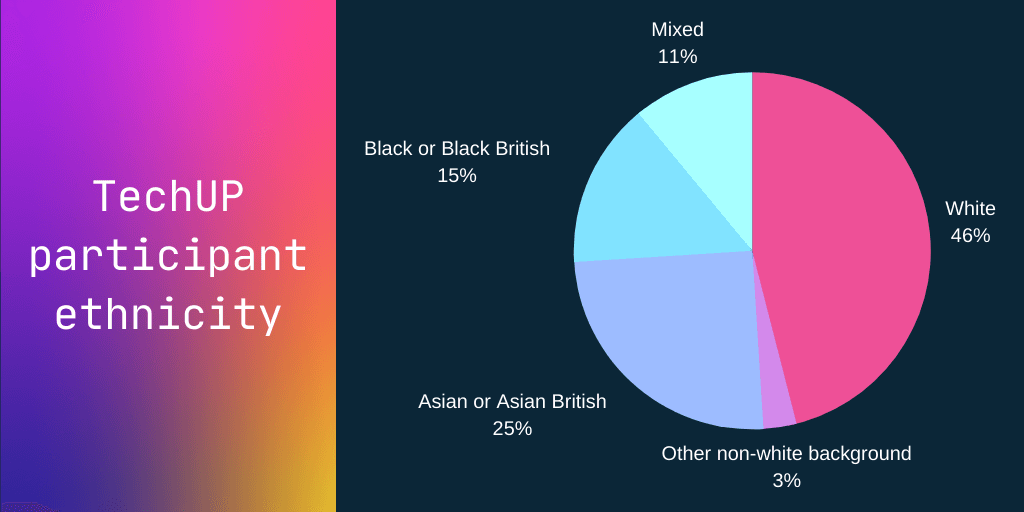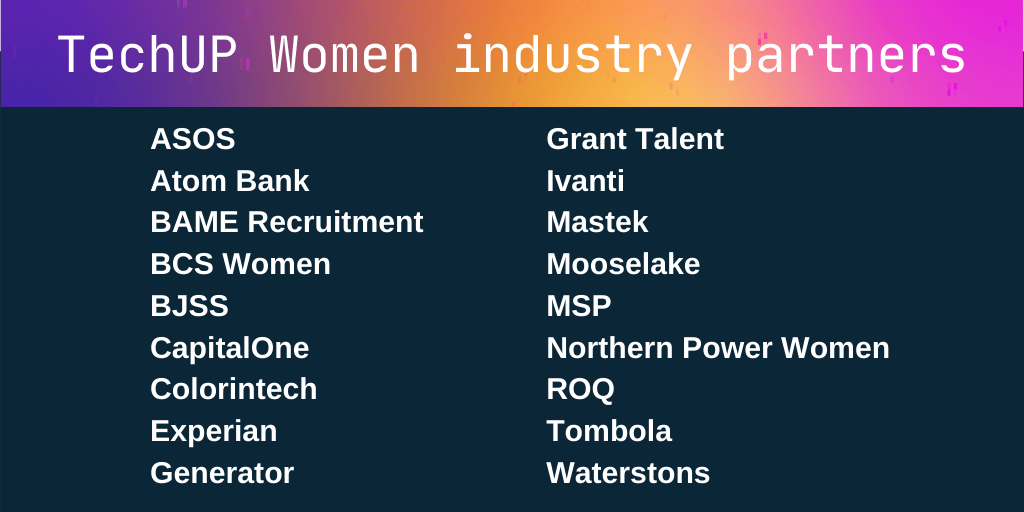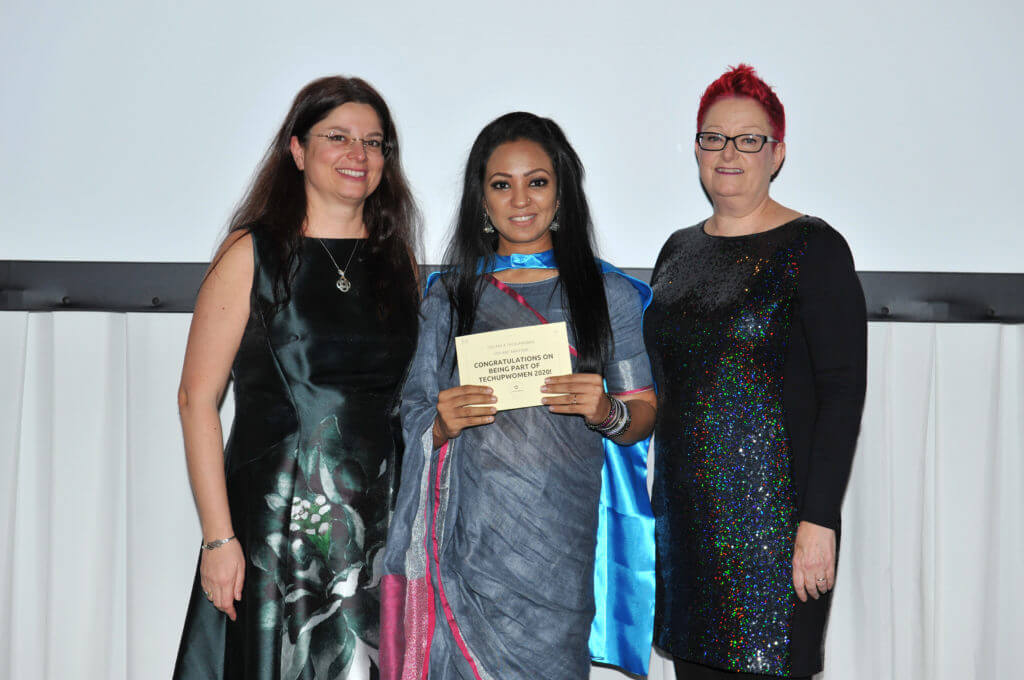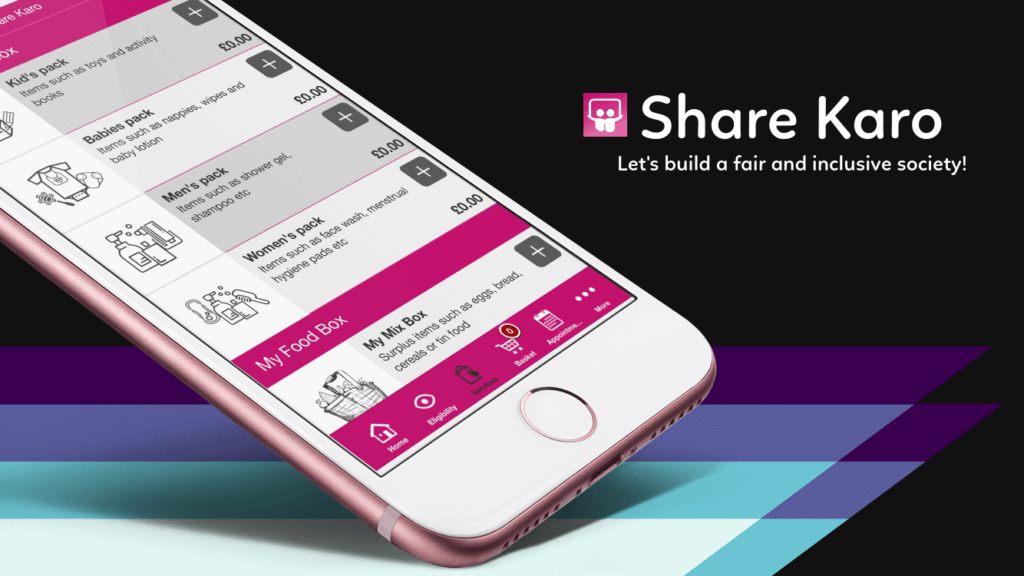How to upskill 100 women and create a community – a TechUPWomen case study
With women making up just 17% of IT workers in the UK, diversity in the digital sector has long been an issue that government, industry and educators have tried to tackle. For the Institute of Coding (IoC), the solution lies in bringing these groups together to collaboratively address the problem head-on. In January 2019, TechUPWomen was launched with this goal in mind.
Spearheaded by Durham University Computer Science Professors Sue Black and Alexandra I. Cristea, and supported by the IoC, the award-winning TechUPWomen programme aimed to retrain 100 women with digital skills in just six months. The programme was led by Durham University, Edge Hill University, the University of Nottingham and the University of York, and 17 regional and national industry partners were heavily involved in the design of the course and the mentorship component, so that participants would walk away with the right skills and new relationships with employers.
Offering the training to a diverse group of participants was crucial. The programme is based in the North of England, so the recruitment process actively encouraged underrepresented BAME women living in the less prosperous areas of this region and the Midlands to apply. Assisted by a social media campaign to reach a broad group of people, the demographics of the 100 successful applicants showed the diversity of women interested in tech, with 54% being women of colour, 46% having a disability and 40% having a dependant.

To maximise flexibility for participants, the majority of the course was delivered via online learning. Topics included digital skills such as coding, cyber security and machine learning, and professional skills like public speaking, communication and teamwork. Each participant was also matched with an industry mentor, who supported them throughout and provided expert advice.
For the participants however, the highlight of the programme was the residential weekends – four in total over the six months, each held at one of the university partners. The residential weekends aimed to help participants build confidence, promote bonding with their peers and provide networking opportunities with industry in career fairs.

This close level of industry involvement in the programme was a win-win for the participants and industry partners. Participants could learn directly from potential employers and ensure that they gained essential digital skills for the workplace, while employers gained knowledge on how to adapt their own recruitment techniques to be more inclusive and accessible.
One of the many success stories from the TechUPWomen programme is Fareeha Usman, founder of the Being Woman charity and new app designer. Below, Fareeha shares what she learnt from the programme, and how she’s used these skills to benefit her community.
Fareeha’s testimonial
It doesn’t matter whether you’re new to digital skills or are an expert computer scientist, being one of 100 TechUPWomen is something that will change your life. Starting to learn new digital skills may sound a bit scary – and it is – but when you overcome the challenges that are part of this experience, you become a different person.

Although I was already motivated to help equip people with digital skills, I was finding it hard to manifest these plans. Through TechUPWomen, I learned how to convert my dreams and ideas into a goal, and then achieve it. Here are three of the actions that helped me in this journey:
Leaving your comfort zone
Stepping out of your comfort zone was one of the main challenges faced during TechUPWomen. However, it’s also the best way to learn, grow, and boost your self-confidence. When you accept the challenge of stepping into a completely different learning environment, you have the chance to open new doors you didn’t even know existed.
Appreciating and uplifting diversity
We all know that every person has their own culture and norms of life, right? However, it’s only when you experience these differences first hand that you can open up and learn more. During the residential weekends, I was able to connect with other ambitious women who were on the same journey as me, and who shared the same motivation to bring about change in our communities. Learning about diversity will give you the ability to understand different behaviours and mindsets. In the long term, this means you’ll be able to understand diverse backgrounds and reduce social injustice in all areas of your life.
Developing new and important skills
While doing a study based online programme, people usually focus on developing their hard skills—also known as technical skills. Topics like marketing analytics, coding, and project management are all technical skills that definitely benefit a career, but on the TechUPWomen programme, we also developed soft or human skills. We learned that they’re just as important, because they help people interact, communicate, and consequently work better.
After graduating from TechUP, I was able to take on more partnerships for my charity Being Woman, and the charity itself grew as we were able to recruit more staff, trustees and volunteers. We initiated many new projects to help teach digital skills to the most isolated and disadvantaged in our community including BAME, asylum seeking and refugee women and families. Our projects are based on the use and benefits of technology, from basic computer courses to something as simple as doing a video call so that they could connect to their loved ones during Covid-19.

Our latest innovation is ‘Share Karo’, a web, IOS and play store application that means Let’s Share! During lockdown, we’ve interacted with many people who do not feel comfortable letting anyone know that they use food banks during this difficult time. We wanted to create a way for them to order food and essentials securely and privately. With Share Karo, users can request their groceries on a simple and user-friendly application, through a faceless secured connection. All it requires is a signup and they will be able to get food at their doorstep! The app will be available to download in a few weeks’ time and is currently in the testing phase.
Not only has TechUPWomen given me the skills to advance my organisation and help my community, but it gave me the chance to discover a new world, new people, and a whole lot more. Every day is different and exciting when you’re a part of this cohort of incredible women. From learning about Python to discovering artificial intelligence, there is so much to gain from this amazing journey.
With a strong 96% programme completion rate, Fareeha is just one example of the skilled and enthusiastic graduates from the first cohort of TechUPWomen. At the end of the programme in January 2020, the employment-ready participants had the opportunity to interview with the partner companies they’d interacted with throughout the course. Employers include manufacturing (Jaguar Land Rover and MSP), software (Double Eleven Ltd), education (JISC and Code Nation), service (HR in One) and the public sector (Newcastle City Council and Durham Constabulary). They were also given an additional list of interested companies for an internship, apprenticeship, full-time, or part-time position, or the chance to apply for further programmes at TechUP’s partner universities.
Projects like the TechUPWomen programme that combine the efforts of government, educators and employers are vital to welcoming a more diverse group of learners into digital education and careers. The IoC and its partners hope to continue these collaborations in the future, to ultimately address the growing digital skills shortage in the UK.
If you or your company are interested in partnering with the IoC, please email us at ioc@bath.ac.uk.
If you’d like to start your digital skills journey like the TechUPWomen, visit our course catalogue to find a wide range of courses.




